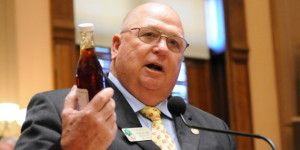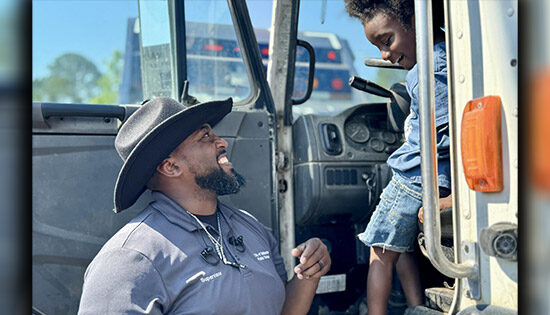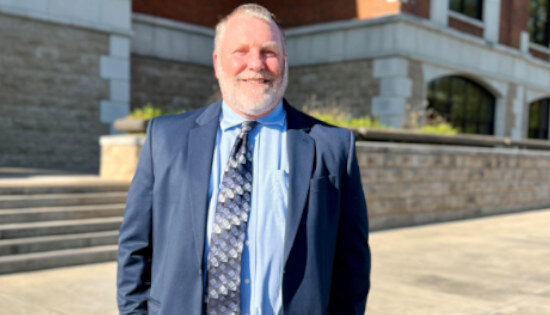 Note: This week’s editorial focuses on the Republican nominee, State Rep. Ellis Black (R-Valdosta), in the race for the 8th District State Senate seat being vacated by Sen. Tim Golden (R-Valdosta). The Democratic nominee was spotlighted in a previous editorial. Both editorials present a portrait and critique of the candidate and do not represent an endorsement of any candidate or campaign by the author, Valdosta Today.com, or its parent company.
Note: This week’s editorial focuses on the Republican nominee, State Rep. Ellis Black (R-Valdosta), in the race for the 8th District State Senate seat being vacated by Sen. Tim Golden (R-Valdosta). The Democratic nominee was spotlighted in a previous editorial. Both editorials present a portrait and critique of the candidate and do not represent an endorsement of any candidate or campaign by the author, Valdosta Today.com, or its parent company.
EDITORIAL—The “friends and neighbors effect,” a term employed by political scientists to denote a style of interpersonal politics devoid any overbearing and substantive dialogue regarding policy, with the primary focus being localism and the relationships inherent to small communities. In his 2000 masterwork on changes in southern representation and constituency, American political scientist Dick Fenno authored Congress at the Grassroots: Representational Change in the South, 1970-1998. Fenno uses a simply case study of the tenures of two Congressmen, Jack Flynt (Democrat, 1954-79) and Mac Collins (Republican, 1993-2005), within a similar legal constituency southwest of Atlanta, to expound on the changes in the representational styles and political circumstances in the late-twentieth century south.
Jack Flynt typified friends and neighbors politics. In one ride-along when Fenno accompanied Flynt to a campaign stop, Fenno notes that Flynt stopped his pick-up truck at an intersection to purposefully exit the vehicle and speak and dawdle with another man idle at the adjacent stop sign. Flynt loved interpersonal politics. He never spoke of issues. To Flynt, the people knew how he stood on the issues, and he knew the sentiments of his constituency—in essence, there was mutual agreement between him and his constituents insofar that protracted policy debate was wholly unnecessary. Further, Flynt exhibited an incessant desire to learn the name of each voter he met while “on the stump.” For instance, at the Henry County Fair, Flynt called a constituent by a wrong name and his oversight deeply concerned him. Because of his oversight, the Congressman circled the fairgrounds to “run into” the same voter again prior to exiting, in order to say goodbye, all while making sure to use the gentleman’s correct name, of course.
Jack Flynt was a farmer, a legislator who exchanged his plaid shirt, blue jeans, and beat-up pick-up in rural Georgia for a well tailored pin-stripe suit and Lincoln Town Car in Washington. Although a member of the old southern Democratic Party, Flynt demonstrated little concern for the issues most salient in midcentury Dixie—most notably, segregation and racial politics; his demeanor was always casual. In fact, Fenno notes his election night party at his farm was “markedly casual.” After winning another term in Congress, Flynt walked outside, barefoot, chewing on a cigar while kicking the dirt around him to pass the time. Flynt was a politician with rural simplicity devoid, in his estimation, the pomp and circumstance of “dirty Yankee politics” and urban campaigns.
In many ways, while interviewing Ellis Black, my mind kept returning to Flynt, drawing parallels between the two men. Like Flynt, Black is a farmer. Previously, Black has served in the Georgia House of Representatives as a Republican, with his tenure beginning in 2001. To apply charity to Black’s sentiments, he sees himself as a conservative. To Black, Georgia has always been a conservative state. Regardless of party label, Democrat or Republican, Black contends that above all our state needs and wants conservative political leaders. Black is not a policy wonk. He is a formidable legislator, though a legislator who’d rather know his constituents and their needs than the ins and outs of the nuances of public policy.
Black met me at his farm. It’s fair to posit that, above all, Black is a farmer first and legislator second. He understands the needs of the farmer in this century. Among my toughest questions to Rep. Black was, as a pro-business Republican serving in the State Senate, would he stand with large multinational agribusiness firms buying up family farms throughout the south or would he stand and defend family farmers. His reply was direct, “I’m a family farmer.” Black says what he means and means what he says. To personally opine, I may not agree completely with Black’s platform; further, I do not agree with both candidate’s platforms wholly in this State Senate contest, but I respect Black for he says what he means and he means what he says. After both studying and serving in politics, I know when I’m being given “lip service” or “spin.” In Black’s case he’s a straight shooter and that’s something constituents on both sides of the aisle can respect him for—that’s something I respect him for.
However, there is a downside to friends and neighbors politics. Often, it is important for the citizenry to have a broad conversation on the important issues of our time. To have “the great debate” and hash out those problems which desperately seek resolution. With issueless politics, there’s no such thing as a national conversation. For issueless politics take root in systems where one-party or ideology exhibits a muffling dominance over the other. Rural South Georgia has the necessary conditions for issueless politics. The downside, issueless politics can lead to issueless elections and general electoral apathy. Candidates are elevated to civic office based upon personality and not substance.
Further, most troubling is Black’s vote, while serving in the State House of Representatives, in favor of the “Safe Carry Protection Act of 2014”—more often referred to as the “guns everywhere bill.” The legislation signed into law by Gov. Nathan Deal, allows for the concealed carry of firearms in churches, on college campuses, and in bars and government buildings. Interestingly, a recent PBS News Hour report notes that a hefty majority of Georgians, 59 percent, disapprove of the guns everywhere bill. I then queried Black why he would vote for a bill permitting the concealed carry of firearms on college campuses when the Board of Regents of the University System of Georgia and each USG institution president, including Valdosta State University’s president, Bill McKinney, formally opposed the law. Black rightly noted that each institution could opt-out of the law by conspicuously posting signage prohibiting the concealed carry of firearms. Simply, Black affirms that if Bill McKinney doesn’t want firearms on his campus, he could have the VSU Police enforce a university-wide ban.
Georgians overwhelmingly believe in responsible gun ownership—that much is not in dispute. Personally, I have always fervently supported the notion that gun ownership is a fundamental right. Of course, gun ownership is a cornerstone for sportsman, hunters, and hobbyists alike. Further, many citizens employ firearms to protect their families, homes, and property—and rightfully so. However, most Georgians also agree that bringing guns into the learning environment, houses of worship, and, particularly, bars and taverns is an affront to responsible gun ownership. Each constitutional provision has its limits; the second amendment is not exempt. Citizens may not possess automatic weapons or military-grade munitions. Guns cannot be taken in the cabin of commercial aircraft. To further the point, guns cannot be taken into a federal building or openly carried on our nation’s military bases. To this end, I must disagree with Black’s vote. When our state and nation demand great political courage from our leaders and those leaders fail to deliver, this is something that we must not take lightly. Placating to the ideological extremes on any political issue is something we should be wary of when demonstrated by our political directorate.
Nevertheless, if South Georgians want an experienced conservative to represent them in the Senate in Atlanta, look no further than Ellis Black. I have no doubt that Ellis Black is more than willing to enter the Senate chamber with an open mind and a willingness to take on entrenched and moneyed interests. Too often it is the case in the more recent history of Georgia politics that the dominant class in the state legislature is not in a partisan majority, but a majority of metro Atlanta lawmakers versus the rest of the state. South Georgia is at a particular disadvantage, even more than other rural portions of the state. Implicitly, I believe that as a State Senator, Ellis Black will be a fighter for the South Georgia region and the values inherent to it. South Georgians need a leader in Atlanta who will fight for each dollar, for each benefit, for each value that we need or stand for here in the southern portion of the state.
In his foundational 2006 piece on recent changes in the American South, political scientist J. David Woodard in The New Southern Politics posits that Georgia, along with Florida, Texas, and Virginia are “national states.” These bellwether states are largely on par with the non-south regarding critical socioeconomic and political benchmarks. Interestingly, despite Georgia’s high development, the General Assembly is categorized as a “citizen legislature.” Legislators only serve part-time; typically have limited staffs; and smaller salaries compared to larger “professional” or “hybrid” legislatures. Among the most characteristic facets of Georgia’s legislature is the fact that ordinary citizens—not career politicians—enact laws on behalf of the body politic. Each legislative session, members of the General Assembly converge on Atlanta; leave their families, businesses, and farms in order to do the people’s business, to debate the great issues of the day, and then return home to the far reaches of the state.
To that end, Ellis Black is uniquely positioned to serve. A farmer who learned to ply his trade from his father, a tenured legislator in the State House of Representatives, and a man who understands the values of his constituency. To the business community, Black will be the man in your corner. To South Georgia farmers, Black understands the needs of the modern farmer—because he is one. In an ever changing world, Black will defend family values, the tenants of hard work, and ensure that our region gets a fair shake by those in urban Atlanta. Black typifies the citizen-legislator archetype; a breed of man who sees public service not as a goal in itself, but as a public trust, as a foundational and critical element of participatory democracy.











